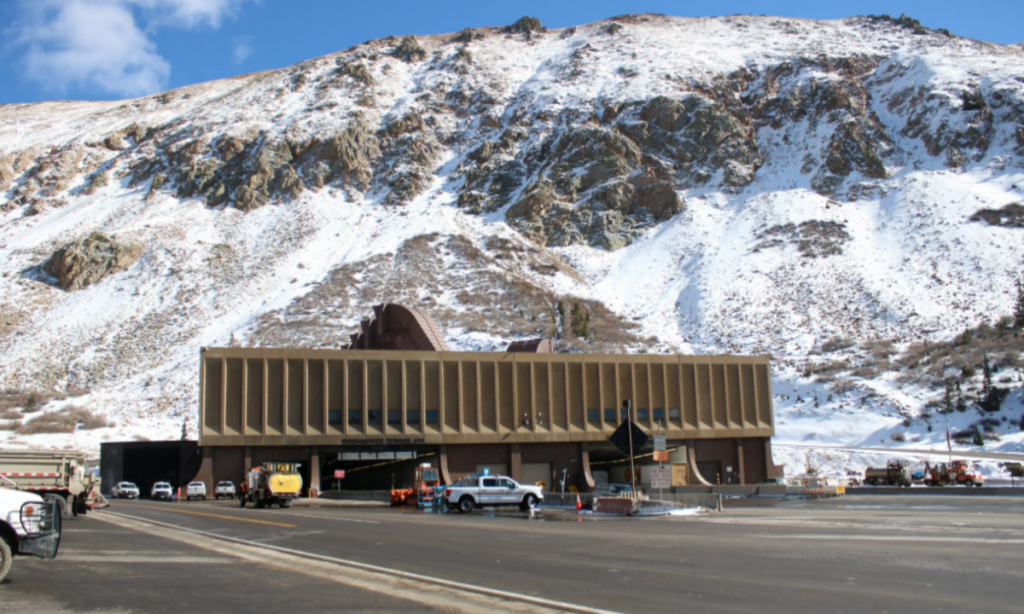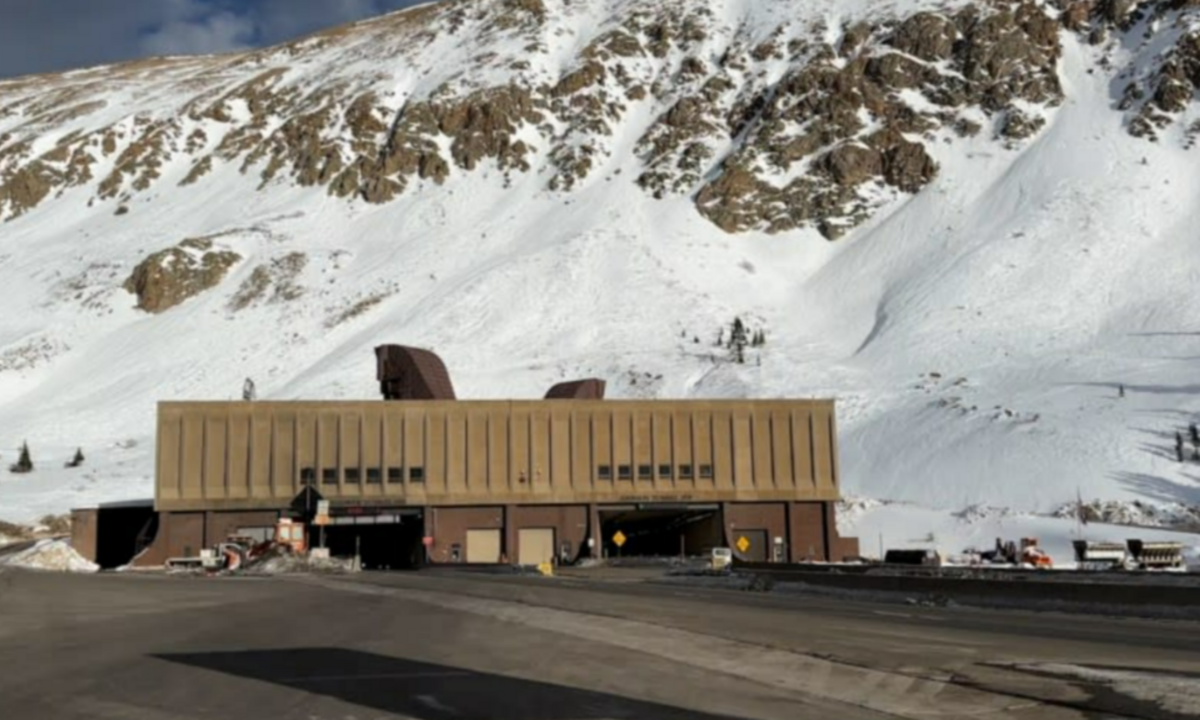The Eisenhower-Johnson Memorial Tunnels, vital passages on Colorado’s Interstate 70, are undergoing significant repairs to address persistent ice buildup and water leakage issues.
These tunnels, operational since the 1970s, have recently exhibited increased ice formation, prompting the Colorado Department of Transportation (CDOT) to initiate a comprehensive $71 million repair project. This project aims to enhance tunnel safety, improve traffic flow, and extend the lifespan of this crucial infrastructure.
Understanding the Ice Issue
Located over 11,000 feet above sea level, the Eisenhower-Johnson Tunnels are among the highest vehicular tunnels in the world. Due to their high-altitude location, groundwater naturally seeps through the tunnel walls. In winter, this water freezes, leading to ice accumulation on both the tunnel walls and road surface. While CDOT crews have regularly removed ice and conducted temporary fixes, the issue has worsened in recent years, increasing the risk of accidents and maintenance costs.
CDOT officials state that this ice buildup is due to aging infrastructure, shifting groundwater patterns, and climate variations. Without intervention, the problem could lead to further structural deterioration and increased safety hazards for the thousands of vehicles that pass through the tunnels daily.
CDOT’s Repair Initiative
In June 2023, CDOT launched a $71 million project aimed at modernizing the Eisenhower-Johnson Tunnels. A major focus of this project is preventing water from seeping into the tunnel walls, which is the primary cause of ice formation.
CDOT engineers have devised a plan that includes:
Removing wall panels to inspect the underlying structure and identify leaks.
Installing improved drainage systems to direct water away from the tunnel interior.
Reinforcing insulation and waterproofing materials to minimize moisture seepage.
Conducting structural repairs to address wear and tear from decades of use.
Recent Developments and Challenges
During the ongoing repair work, CDOT crews have observed water behaving differently than expected. Water that previously drained in specific areas is now appearing in new locations, leading to unexpected ice formation. This has required CDOT to adjust its approach, including further investigations behind the tunnel’s wall panels to determine the best long-term solution.
To ensure safety during these operations, periodic lane closures will be necessary. CDOT has assured the public that these closures will be planned strategically to minimize traffic disruptions, especially during peak travel seasons. However, travelers are advised to check for updates before driving through the I-70 mountain corridor.
Safety Measures and Future Plans
CDOT emphasizes that regular inspections and maintenance are crucial for preserving the tunnels’ structural integrity. Since they serve as a lifeline for mountain travel in Colorado, ensuring their long-term functionality is a top priority.
In addition to the current repairs, CDOT has allocated an additional $100 million for future improvements, including:
Upgrading tunnel ventilation systems to improve air quality and reduce ice-related moisture.
Implementing new monitoring technology to detect early signs of structural weakness.
Expanding emergency response capabilities within the tunnel system.
The current phase of the project is expected to be completed by fall 2025, with long-term maintenance continuing in the years ahead.
Impact on Travelers
For drivers traveling through the Eisenhower-Johnson Tunnels, CDOT recommends the following precautions:
Stay updated on lane closures by checking CDOT’s website and traffic alerts.
Reduce speed when driving through the tunnels, especially during winter conditions.
Be cautious of road crews and construction zones within the tunnels.
With ongoing improvements, CDOT aims to make the tunnels safer and more reliable for the millions of drivers who rely on them each year.
Conclusion
The Eisenhower-Johnson Memorial Tunnels play a crucial role in Colorado’s transportation network, connecting travelers through the Rocky Mountains. With ice buildup becoming an increasing safety concern, CDOT’s $71 million repair project is essential for maintaining the tunnels’ integrity and ensuring safe passage for all motorists. While temporary lane closures may cause short-term inconveniences, the long-term benefits of a safer and more efficient tunnel system far outweigh the disruptions. As repairs continue, CDOT remains committed to keeping the public informed and minimizing traffic impacts.
Disclaimer—Our team has checked this article to ensure its accuracy and eliminate any misinformation. We are committed to providing clear and reliable information for our readers.


